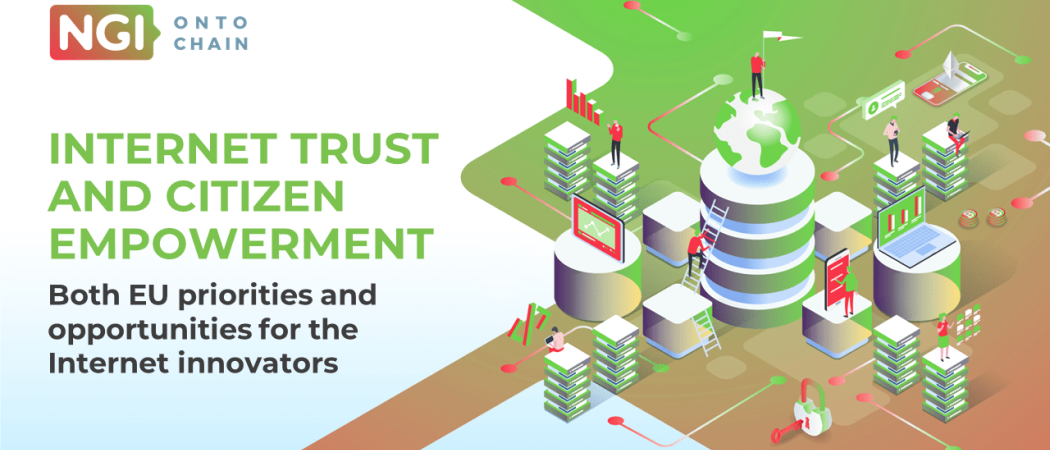
The need to address the Internet’s vulnerabilities will open up opportunities for innovators
The development of information technology and the Internet over the past few decades has resulted in an irreversible digitisation process. In the past few years, this evolution has accelerated rapidly, but without resolving long-term vulnerabilities and susceptibilities related to cyber-security, cyber-crime and user infringement.
Internet innovators across the world are showing rising interest in bolstering information credibility, the validity of information processing and exchange, personal data protection, and copyright. Blockchain technologies are being used to develop trustworthy safeguards: transactions and other actions are recorded on a distributed ledger so that everyone involved can be held accountable. For example, cryptocurrencies facilitate digital transactions between partners, without the involvement of a trusted central entity (a bank), through an integrated and automated execution of software code in the blockchain network.
Recognising the importance of addressing Internet vulnerabilities/susceptibilities for the future of digitisation, the European Union has made trust and citizen empowerment a high priority. In 2018, for example, the EU formed its own legal framework with the General Data Protection Regulation.
The EU continues to develop policies and strategies to address new challenges and to defend its interests within an ever-changing world as digitasation expands into more and more sectors. The Next Generation Internet (NGI) initiative is a dynamic tool that aims to reshape the existing Internet into a human Internet: A network that is aligned with fundamental human needs, including trustworthiness, security and integration, privacy, collaboration and diversity, and reflects the values and rules that all European citizens should enjoy.
Building reliable blockchain-based knowledge-management solutions
Aware of the significant role distributed ledger technologies could play in restructuring the Internet, the EU is funding a number of blockchain projects and has been building a European Blockchain Services Infrastructure (EBSI) since 2018.
The NGI and the EU’s Horizon 2020 research and innovation programme are funding the ONTOCHAIN project, which aims to enhance and support innovation and entrepreneurship in Internet services. It is developing reliable blockchain-based knowledge-management solutions as part of an ONTOCHAIN software ecosystem.
ONTOCHAIN is aiming to shape an ecosystem that involves scientific and professional communities in building a blockchain platform, enabling business models for future decentralised applications are trusted and empower users. It uses both the semantic web and distributed ledger technology to deliver a new software ecosystem for trusted, traceable, and transparent ontological knowledge management. It is also exploring and delivering novel interoperable on-chain and off-chain data, ontology, knowledge and information management methods.
The ONTOCHAIN software ecosystem basically consists of a novel protocol suite grouped into high-level application protocols. This architecture allows for trustworthy information exchange and trustworthy and transactional content handling to be achieved in future decentralised applications. Its end-goal is to develop a scalable blockchain, and decentralised and semantic web technologies. For this purpose, advanced theoretical and applied research is needed in order to establish a multilayer and modular technological framework. Such a framework will enable performance and scalability through the engagement of different business logics, access methods and governance models, while ensuring secure and transparent content, information exchange as well as service interoperability.
“Trustworthy decentralised apps (dApps) bring back the power of data and information to citizens and strengthen a new multi-billion-euro economic sector with a high social impact,” says Thanasis G. Papaioannou from Athens University of Economics & Business (AUEB) and the Services, Technologies and Economics (STEcon) lab led by George D. Stamoulis. “The ONTOCHAIN platform will provide different libraries and components to future dApp developers for decentralised identities, exchange of verifiable credentials, reputation management, knowledge extraction, privacy-aware data processing, data provenance, copyrights management, and more. The train has already departed, and the EU is aiming to be in its first wagons.”
“Today our digital and physical worlds are converging to a point that has a great impact on the citizens themselves, on our society and all sectors of the economy,” adds the ONTOCHAIN project coordinator Caroline Barelle from the research and development department of EUROPEAN DYNAMICS (Athens) led by Anastasia Garbi. “It is now possible for citizens from all over the world to participate in the generation and use of knowledge like never before thanks to the Internet. However, the Internet cannot assure that bias or systematic abuse of global trust are avoided.
“Indeed, the way knowledge is actually generated, curated and stored in our digital world does not prevent personal privacy violation and personal data exploitation, unknown provenance of information, anonymity in favour of criminal activities, biases in AI algorithms, spread of fake news, skills mismatches, serious breaches of security… To shape a trustworthy digital future for our Society and to respond to its current needs, identity, privacy, security and citizen control of their digital life should be the four cardinal points that any new digital technologies/services should embed. The ONTOCHAIN consortium and its network of European innovators are working hand in hand to make it happen for different application domains, such as eEducation, eHealth, eGovernment, eCommerce, eTourism, eInfrastructures and so on, contributing to strengthening Europe’s digital leadership.”





 A unique international forum for public research organisations and companies to connect their external engagement with strategic interests around their R&D system.
A unique international forum for public research organisations and companies to connect their external engagement with strategic interests around their R&D system.